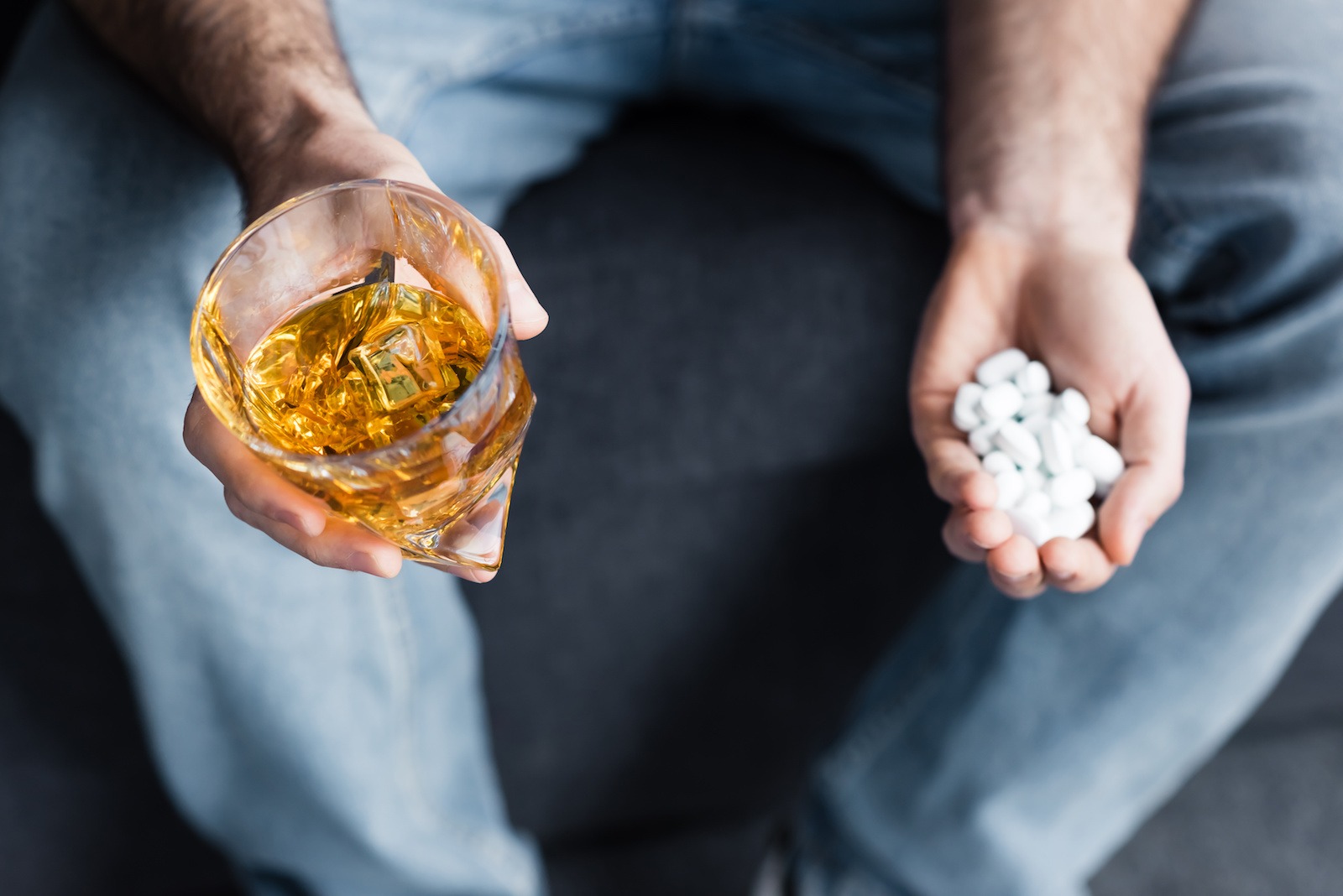Table of Contents
One drug can be a nightmare for you and your health, but mixing alcohol and drugs will double the pain. Alcohol itself is numbing at best and destructive and dangerous at worst. From drunk driving to drunken fits of rage, drinking far too much turns you ugly.
Hydrocodone is a highly addictive opioid pill and painkiller. If you use opioids to overcome pain, you might find yourself addicted to the sensation it causes, even if the pain stops. Even if a medical professional assigns you opioids, they caution against drinking while on the pills. Hydrocodone is one of the most prescribed painkillers in America, but you need to follow the prescription from the doctor.
However, if you find yourself addicted to both hydrocodone and alcohol, or any other combination of addictive substances, you will need to seek help to detox from the substances. Don’t wait and don’t go at it alone, because that only causes more problems for you.
Dangers of Mixing Hydrocodone and Alcohol
Whenever you mix these two substances, you can get many very harmful symptoms. One of the dangers is how these addictions mess with your brain. Alcohol is a depressant that tends to make you feel dizzy and sleepy. If you drink enough, you feel sleepy and tired at the end of the day. However, if you combine the effects of alcohol with another drug that does something different, you will confuse the brain.
An opioid is a depressant as well, especially Hydrocodone. Hydrocodone is a pain killer, so you feel lightheaded and sleepy whenever you take it. Combining two depressants that slow your body down is dangerous as all the effects will be doubled. In addition, they enhance one another, and even small amounts of both can cause many problems.
This will make your body tired and slow down your bodily functions. This is a serious problem whenever your heart starts to slow down and doesn’t pump as much blood to the body. Taking it too much can lead to fatigue, fainting, difficulty breathing, nausea, and sometimes coma. Even death can happen if you have an overdose.
Finally, while you have a lot of inhibitions while drinking, hydrocodone can remove those inhibitions. This leads to you drinking too much, taking too many pills, and not thinking about when you should stop. Finally, the continued use of these drugs can damage your liver and your body, and the damage will eventually become irreparable.
Hydrocodone and Alcohol Withdrawal Symptoms
Both of these substances have some major withdrawal symptoms, and dealing with two sets of withdrawal symptoms simultaneously will mess with your body. For Hydrocodone, the withdrawal symptoms are the opposite of the drug’s effects. The opioid makes you feel good whenever you take it, giving you euphoria. However, whenever you withdraw from it, you tend to feel depressed. Another effect of opioids is fatigue. However, when you stop taking them, you will often have insomnia.
The same thing happens with alcohol, as the most common withdrawal symptom is the hangover. While you are drinking, you feel really good, but when you stop, all the pain returns. Finally, both substances mess with the reward and dopamine system of the brain, elevating it to an unattainable level.
Once the stimulation is gone, the brain doesn’t know how to feel good. So you get depression, anxiety, and the urge to consume more to feel even better. As your body learns how to function without the supernormal stimuli provided by the substances, you will go through withdrawal symptoms.
These symptoms can include:
- Anxiety and Agitation: You will feel antsy, frustrated, and very emotional as your body tries to figure out what it can do now that all the supernormal stimuli are gone.
- Insomnia: Although opioids and alcohol tend to cause fatigue and exhaustion whenever you take them, you often can’t go to sleep because you are so wired, and your body is on overdrive, searching for the next fix.
- Sweating and Fever: Since your body is going into overdrive trying to overcome the symptoms of two separate withdrawals, it will cause some physical changes. Fever, nausea, vomiting, and diarrhea are very common as your body detoxes and reaches a normal level.
If you have some of these symptoms, then your body is healing, although you often require help to medicate and moderate yourself as your body goes through withdrawal. Under proper care, you can ensure you are going through each withdrawal period safely.
How to Get Help if Addicted to Hydrocodone and Alcohol
You need to go to a doctor or support center to help you deal with these addictions, and don’t think you can go at it alone. Dealing with one addiction can take everything you have, and dealing with a second addiction can be like climbing an endless mountain. So you need to get some level of help before starting your healing journey.
Make sure to find a reputable doctor or facility, and also reach out to family and friends to discuss the problem and get help for your health. You can beat both of these addictions, and you might discover who you are in the process.
Do not hesitate to reach out if you or a loved one is struggling with any combination of drugs, especially Hydrocodone and Alcohol. Getting help at the immediate signs of addiction will ensure the greatest rate of success for long-term sobriety. Furthermore, it will prevent anything potentially dangerous or fatal from occurring as a result of continuing to take these drugs together. As a result, you will be able to get the help you deserve and will be able to live a clean life.
Sources:
Infinite Recovery has strict sourcing guidelines and relies on peer-reviewed studies, academic research institutions, and medical associations for our references. We avoid using tertiary references as our sources. You can learn more about how we source our references by reading our editorial guidelines and medical review policy.
- MedlinePlus. Opioid addiction: MedlinePlus Genetics. Accessed June 29, 2022. https://medlineplus.gov/genetics/condition/opioid-addiction/
















